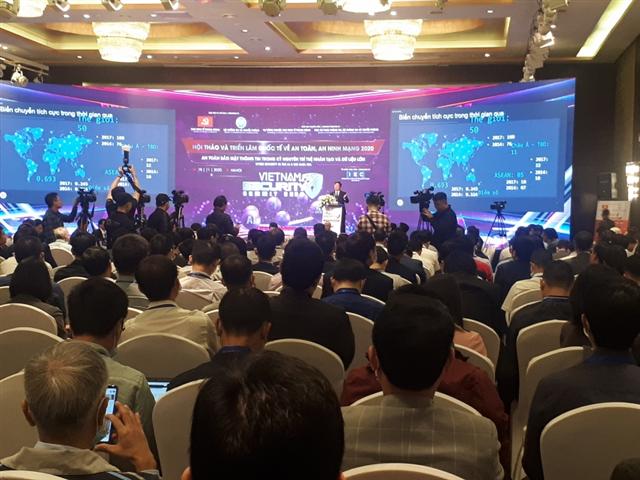Vietnam urged to ensure cybersecurity in digital transformation
Vietnam urged to ensure cybersecurity in digital transformation
As digital transformation is entering a new period of development, pervading all customer segments and industries, Vietnam is urged is to take bolder actions to effectively strengthen cybersecurity.

The Vietnam Security Summit 2020 on November 10
|
The Central Economic Committee in coordination with the Ministry of Information and Communications and other relevant agencies on November 10 held the Vietnam Security Summit 2020, focusing on cybersecurity in the AI and big data era, aiming to seek solutions to possible risks and to protect important IT networks.
During the summit, participations discussed the latest security trends and considerations for digital governments and modern-day enterprises, including the defence of critical national infrastructure, next-gen enterprise protection and customer data assurance.
Nguyen Duc Hien, vice chairman of the Central Economic Committee, said that cybersecurity is a national priority. “Ensuring cybersecurity is considered a key factor for successful digital transformation and sustainability, and an important part that cannot be separated from the digital transformation journey.”
He added that digital transformation has led to an increase in the number of Internet of Things devices and generated large amounts of data. Data has become an important resource of the country and of each organisation and individual, while at the same time the risks of information and data theft and destruction are increasing.
Reports found that cyberattacks have incorporated AI and big data in their techniques and malware would become smarter with phishing technology based on AI.
“We are facing increasingly dangerous and sophisticated cyberattacks. Each agency, organisation, business, and user must always be ready to respond to threats in cyberspace,” Hien stressed.
Echoing Hien’s views, Colonel Nguyen Dang Luc, vice chairman of the Government Cipher Committee, said that cyberattacks and crime had increased recently to steal data, confidential state information, and destroy information systems.
“More and more cybercriminals and reactionary organisations had been established and operated sophisticatedly, causing serious consequences, threatening social order and safety, political stability, and national security,” he added.
Nguyen Khac Lich, deputy director of the Authority of Information Security under the Ministry of Information and Communications, agreed that the current risks were very big, which affected the entire economy. “Cyberattacks are getting more sophisticated, more fierce, and more dangerous.”
The country’s ranking of the Global Cybersecurity Index (GCI) by the International Telecommunication Union (ITU) improved last year. The country ranked 50th out of 193 countries, up 50 notches from 2017; and 11th in the Asia-Pacific and fifth in ASEAN.
In order to realise the goal of becoming a powerful country in cybersecurity and one of the 30 leading countries in the GCI index by 2030, Vietnam needs to focus on development along five main pillars, including legal, technical, organisational, capacity building, and co-operation issues.
Lich also identified other major orientations to ensure information security in the coming time, which are ensuring information security in digital transformation; protecting users in the cyberspace, promoting the implementation of the four-class model at organisations, and identifying humans as the centrepiece of information security.
























